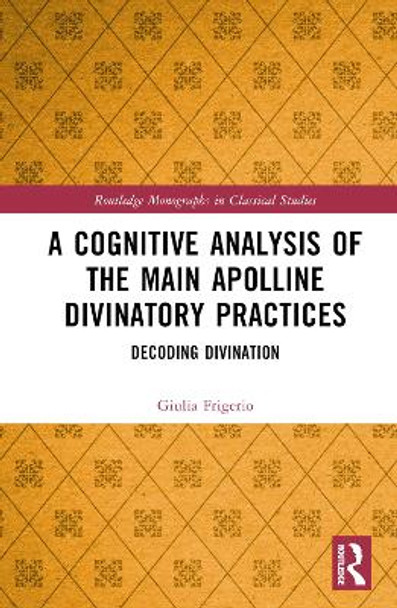Description
This volume takes an innovative interdisciplinary approach to investigating divination procedures at sanctuaries of Apollo in Classical and Hellenistic Greece, merging neuroscience, psychology, and behavioural studies with archaeology.
Through a deep analysis of primary sources and the historical and cultural context of these procedures, Frigerio reconstructs the precise schemata of knowledge and cognitive associations pertaining to ancient visitors of the Oracle, highlighting neural inputs they received inside their minds in these specific situations. The author engages with the archaeological record, studying the cognitive input that both seekers and prophets experienced from features of the outside world such as landscape, architecture, and temperature. This innovative methodology allows for a new understanding of divinatory practices and the formulation of new hypotheses. In addition, this study offers a powerful tool for decoding divination and engaging with the archaeological record in future research.
A Cognitive Analysis of the Main Apolline Divinatory Practices is a fascinating read for students and scholars working on divination and cognition in ancient Greek religion, as well as in religion in the Classical and Hellenistic periods more broadly.
About the Author
Giulia Frigerio recently completed her PhD at the University of Kent, where she is currently teaching modules in Classical and Archaeological Studies. Her passion for Divination and Cognitive Archaeology was born during her studies for a Bachelor's degree at the University of Pavia and developed further during work for her Master's degree at the University of Oxford.
Book Information
ISBN 9781032411521
Author Giulia Frigerio
Format Hardback
Page Count 198
Imprint Routledge
Publisher Taylor & Francis Ltd
Weight(grams) 453g





